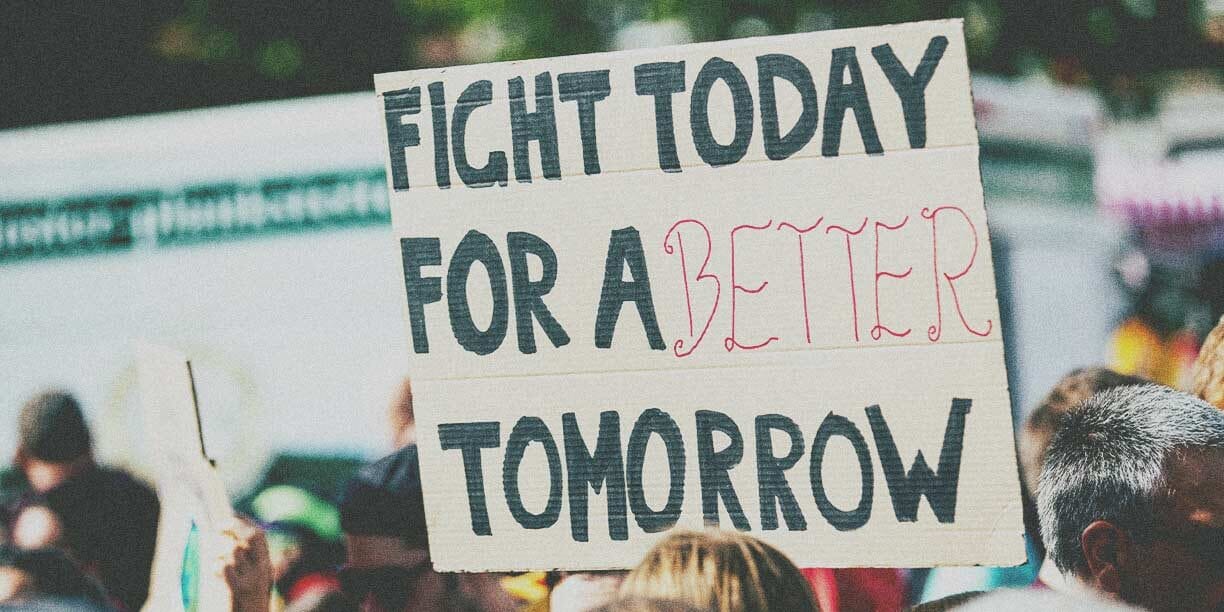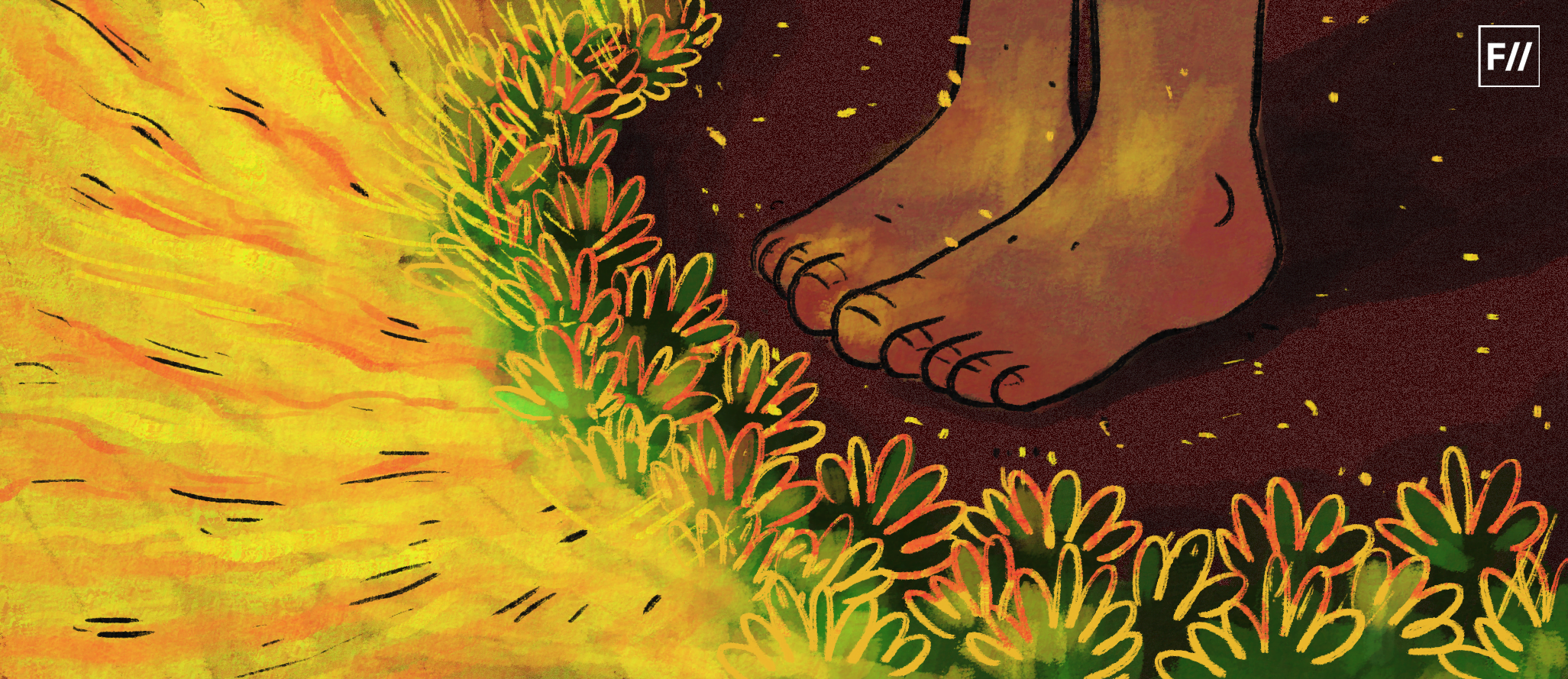In the journey of tackling climate change through ‘Nourishing Now,’ experiences, a group of dynamic young changemakers across India are stepping up to the challenge. These dynamic youth leaders are driving transformative, community-led initiatives that prioritise environmental sustainability and resilience. From empowering women through community-driven agro-farming in Kashmir to training youth in analog forestry in Bihar, they are not just responding to climate challenges—they are shaping India’s green future.
Meet some of our changeloomers who are sowing seeds of change in their communities.
Building a sustainable future: Training youth in climate action and analog forestry in Bihar
‘Growing up, I was always pained by the sight of trees being felled. With all the development around, it only became more common. I couldn’t continue my corporate work and contribute to this chaos. I decided to dedicate myself to building a greener, healthier society by empowering communities through Wild.’
— Shivani Kumari, Wild, Changelooms.
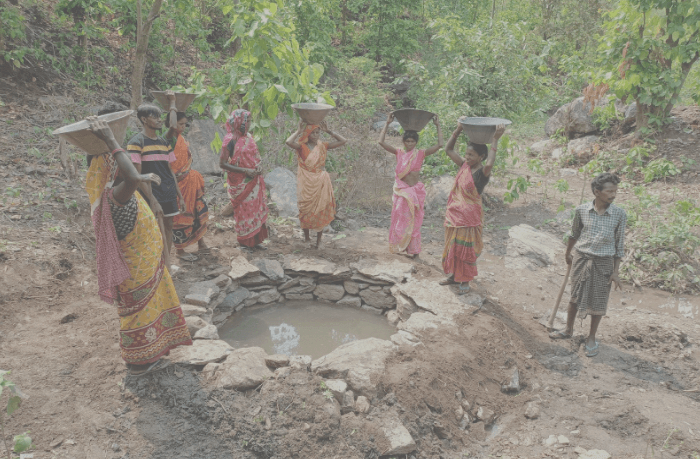
In the arid landscapes of Jamui, Bihar—marked by dry forests and dwindling water resources—a quiet revolution is in motion. Shivani Kumari, a determined changemaker, has turned her early experiences of environmental degradation into a passionate mission for restoration and sustainability. Leaving behind a corporate career, she chose to dedicate herself to empowering communities and reconnecting them with nature.
Together with Sangam, Shivani launched Pragati, an initiative tackling environmental challenges by educating and training youth. At the heart of Pragati is the Green Fellowship Programme, designed to provide hands-on training in analog forestry, biodiversity conservation, and sustainable land management. Through interactive workshops, participants learn to plant indigenous trees, implement mixed farming techniques, and embrace eco-friendly practices.
The impact is visible: communities are adopting eco-friendly practices, and a new generation of environmental stewards is emerging. By nurturing leadership and inspiring youth to envision careers in conservation, Pragati is building a resilient and hopeful future. Every tree planted, every workshop held, and every young leader empowered is a step toward a more sustainable, climate-resilient tomorrow
Empowering women and conserving biodiversity: The green village initiative in Kashmir
‘Women are often the first to bear the brunt of climate change and ecological imbalance. Their struggles are frequently overlooked at the ground, policy, and other levels. Witnessing these challenges firsthand, I aim to involve women as active participants in the ecology and climate narrative.’
— Aijaz Wani, Green Village, Changelooms.
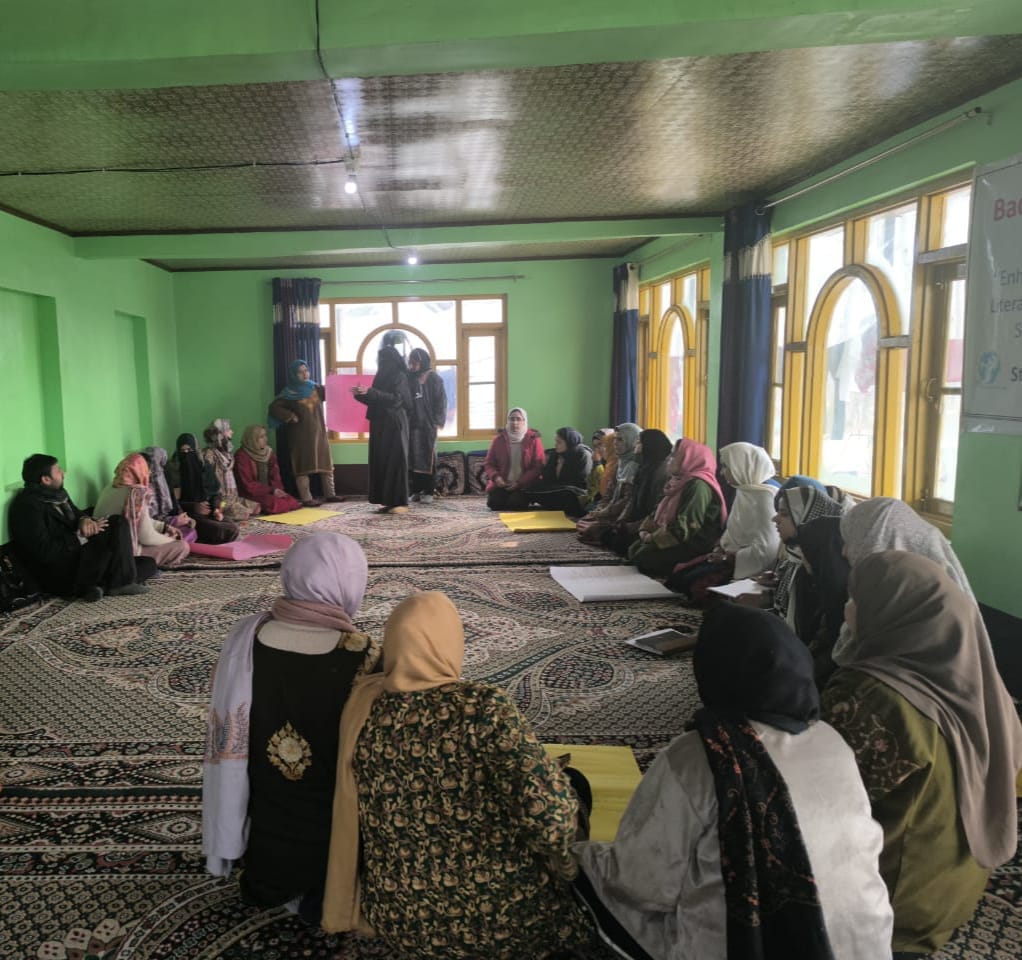
Nestled in the picturesque Kashmir Valley, renowned for its breathtaking landscapes and rich biodiversity, lies a pressing challenge—rapid environmental degradation, unsustainable agricultural practices, and the marginalisation of women in ecological decision-making. The decline of native species, including the culturally significant Chinar tree, highlights the urgency to address biodiversity loss while fostering inclusive community participation.The region poses an urgent need to address the dual challenges of biodiversity loss and women’s empowerment. Historically, women in Kashmir have played a vital role in agriculture and the preservation of traditional knowledge related to local flora. Despite this, they often face barriers to accessing resources, training, and leadership opportunities.
Aijaz Ahmad Wani, a passionate youth leader from Badgam, Kashmir aims to harness this untapped potential by establishing a local nursery that focuses on cultivating indigenous plant species, particularly those with medicinal and cultural significance. This initiative will not only provide women with the skills and resources needed to become agro-entrepreneurs but will also foster a sense of community ownership and responsibility towards environmental conservation. By integrating educational programs and hands-on training, the project seeks to empower women and youth, enabling them to take active roles in biodiversity conservation efforts.
At its core, the initiative focuses on three transformative strategies:
- Establishing Local Nurseries: Providing employment opportunities for women while preserving native biodiversity.
- Capacity Building & Training: Equipping women and youth with skills in sustainable agriculture, organic farming, and conservation practices.
- Community Leadership & Participation: Forming committees of local women leaders to drive conservation efforts and decision-making processes.
Moving ahead, Aijaz envisions to scale operations for the entire district especially for the creation of butterfly gardens and nursery plantations. The Green Village Initiative aims to become a model for sustainable development, proving that economic growth and environmental stewardship can coexist
Empowering communities and conserving nature: One forest at a time
In the Eastern Himalayas, the Kalimpongg region of West Bengal is celebrated for its stunning landscapes, biodiversity, and rich cultural heritage. Eco-tourism and sustainable development initiatives are on the rise, with local organisations and leaders focused on empowering residents through education, skills training, and sustainable livelihoods, ensuring tourism benefits reach the grassroots. With a vision to transform tourism into a community-centric model, fostering meaningful connections between local communities and visitors, Arunavh and Vicky co-founded Muhaan Collective in 2021. Their mission? To promote environmental sustainability, preserve cultural heritage, and create economic opportunities for indigenous communities.
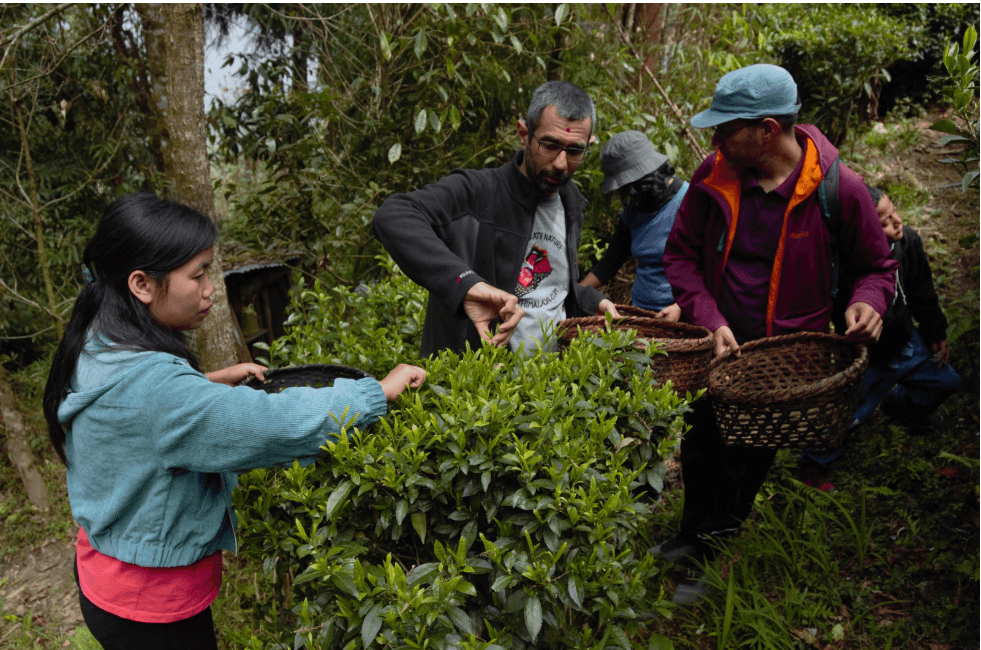
Muhaan has effectively engaged fringe communities across North Bengal, Sikkim, Assam, and Arunachal Pradesh, achieving significant success in reviving cultural festivals such as the Asaar Pandhra Paddy Plantation Festival and the Kholeydai Harvest Festival. These efforts have preserved essential cultural practices and created economic benefits for local communities, strengthening both cultural heritage and livelihoods in the region.
Their model prioritises:
- Eco-Friendly Infrastructure: Off-grid operations powered by renewable energy, constructed using local materials and traditional architectural styles.
- Capacity Building & Leadership: Training locals to manage tourism operations, lead cultural workshops, and take ownership of the project.
- Strategic Collaborations: Working with architects, permaculturists, and community members to design sustainable accommodations and communal spaces.
- Educational & Experiential Tourism: Co-developing immersive learning programs with local experts, focusing on heritage, conservation, and sustainable living.
- Marketing & Outreach: Establishing a strong presence through social media, events, and the annual Neora Valley Forest Festival, which showcases workshops, nature experiences, and cultural exchanges to promote both the Centre and the National Park.
Moving ahead, the dedicated duo envisions expanding engagement with remote communities across the Eastern Himalayas to help preserve and promote their unique cultural practices. This would involve developing innovative, sustainable tourism models that provide authentic cultural experiences while strengthening educational tourism through comprehensive guide training and a greater focus on conservation awareness, all the while creating new revenue streams in tourism and related activities for the natives.
These inspiring stories are just three examples of the transformative work being done by the 75 youth leaders under the Changelooms: Youth Leaders in Climate Action programme. A 3-year programme to nurture young social entrepreneurs towards prioritising climate action as a critical agenda in their respective communities. The programme is collaboratively run with ComMutiny—The Youth Collective, VartaLeap, Dhriiti, Jhini Learning, Pravah, Wild Tales, and Bindi International. Currently, these Changeloomers are leading impactful projects in areas like renewable energy, rewilding, agroecology, and more.
This journey is an iteration ofthe Changeloomss programme that has nurtured 700+ youngleaders/ entrepreneurs over the last 20 years. Changelooms is an inside-out learning and leadership journey that identifies, celebrates, nurtures capacities, and develops early-stage young social entrepreneurs and their social change initiatives. Since its inception, Changelooms has supported approximately 700 young social entrepreneurs across India, enabling them to pioneer transformative efforts in diverse areas such as gender equity, climate action, constitutional literacy, well-being, child rights, and more.
